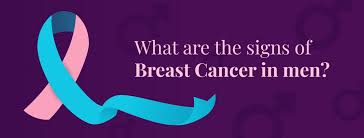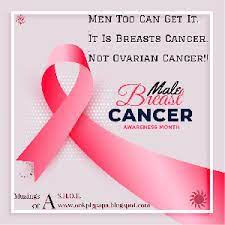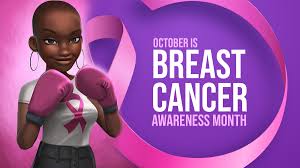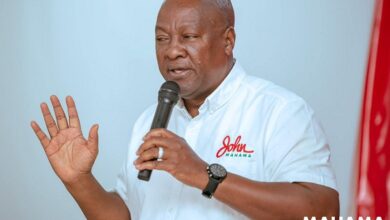Male breast cancer: Are Ghanaian men at risk?
When October begins, we often hear about “Breast Cancer Awareness,” “Pinktober,” and similar terms, especially from women and others.
Breast cancer has been a significant health concern for decades, causing the loss of mothers and, to a lesser extent, some fathers who are breadwinners of their families. However, recent research has shed light on the misconception that breast cancer is solely the domain of women.
When it comes to raising awareness about male breast cancer in Ghana, many men tend to exhibit a dismissive attitude. They often make comments such as, “During this month, we’ll be exposed to women’s breasts because of ‘No Bra Day,'” or just about “pressing and sucking women’s breasts as a way to contribute to the fight against breast cancer.” Some even go so far as to assert that “breast cancer is a disease meant for women, not men.”
To them, I pose the question: “Dear Ghanaian men, don’t you also have breasts to protect? Are you aware that men can also develop breast cancer?”
In my conversations with various men regarding their knowledge of male breast cancer in Ghana, it became evident that a significant portion of them firmly believes that breast cancer is exclusively a women’s issue. Furthermore, a few individuals express doubt about the very existence of male breast cancer, mainly because they have not come across information about it in the past.
Breast cancer is “rare in men” but real
Extensive research has definitively shown that breast cancer does not discriminate by gender, affecting individuals regardless of their sex.
The latest report from the World Health Organization highlights a growing body of evidence indicating that breast cancer is not solely confined to women but can indeed impact men. This understanding is bolstered by the courageous accounts of Ghanaian men who have openly shared their struggles in coping with breast cancer.
The question arises: should men underestimate the seriousness of breast cancer as a potential threat to their well-being simply because it affects a smaller number of individuals compared to women? Is it merely a concern for those with breasts, or is it a matter of broader health awareness?
Prominent physician around the globe have emphatically emphasized that breast cancer can be fatal for men in Ghana, West Africa. The medical experts revealed a staggering statistic, noting that in the year 2020, nearly 80 percent of men diagnosed with breast cancer lost their lives.
It’s quite shocking that, out of the 9,931 men diagnosed with breast cancer that year, a distressing 7,172 lost their lives to the disease. Now, in the year 2023, we can’t help but wonder about the situation where men still lack sufficient awareness about male breast cancer. This grim fact highlights the substantial toll that breast cancer takes on men.
The doctor further stressed that male breast cancer tends to exhibit a more aggressive nature in comparison to its female counterpart, emphasizing the need for heightened awareness and vigilance among men regarding this potentially deadly condition.
The major challenge
A significant hurdle in spreading awareness about male breast cancer within the Ghanaian context lies in the deeply rooted cultural belief that breast health is exclusively a concern for women. This prevalent perspective has fostered an atmosphere of indifference and sometimes even apathy among men, rendering them less inclined to participate in discussions or take actions related to breast cancer.

Efforts to address this challenge are still in their early stages, with various organizations and healthcare providers striving to dispel these misconceptions. Tailored educational programs and awareness campaigns are being crafted with a specific focus on reaching men, with the goal of dismantling the misconception that breast cancer is a health issue that only women face.
These initiatives seek to emphasize the undeniable reality that although the occurrence of breast cancer in men is less common than in women, it is by no means insignificant, and early detection can be a critical determinant in the outcome, potentially a matter of life and death.
The combat approach
Transforming the mindset of Ghanaian men necessitates a multifaceted strategy. Healthcare providers and community leaders must actively engage in conversations aimed at dispelling myths and promoting routine breast self-examinations.

Prominent individuals in Ghana, including athletes, politicians, and celebrities, can wield substantial influence by setting an example and vocalizing the significance of breast health across all genders.
Furthermore, enhancing the accessibility and affordability of breast health check-ups, especially in rural areas, is paramount in motivating men to take action. Collaborative outreach programs and partnerships between governmental and non-governmental organizations can facilitate access to screening and early detection services.
In summary, though Ghanaian men currently face a knowledge gap regarding breast cancer, there is a promising path towards change through targeted educational initiatives and outreach endeavors. Overcoming entrenched cultural stigmas and apathy will necessitate a united effort involving healthcare professionals, community leaders, and society as a whole.
It is crucial to convey the message that breast cancer awareness transcends gender boundaries, and early detection is a fundamental component of overall well-being for everyone.
By amplifying awareness and dismantling misconceptions, Ghana can strive for a future where both men and women prioritize breast health, ultimately saving lives through early detection and prevention.
Kwame Acheampong/ahotoronline.com



